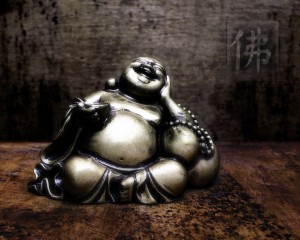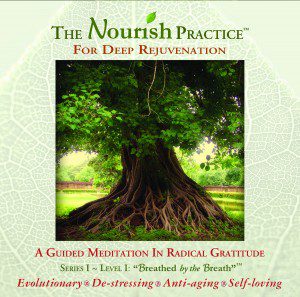By Jack Adam Weber L.Ac., Dipl. C.H.
Contributing Writer for Wake Up World
“I don’t know what your destiny will be. Some of you will perhaps occupy remarkable positions. Perhaps some of you will become famous by your pens, or as artists. But I know one thing: the only ones among you who will be really happy are those who have sought and found how to serve.” ~ Albert Schweitzer
So often we ask, “Are you happy?” But is this the question we should be asking?
Consciously or not, we often judge others as happy. If they are happy, we decide, they are worthy. If we don’t see them happy, they are not worth our time, or worthy at all, for they can’t possibly have anything to offer us. And if someone is outright sad or distressed, many of us can’t handle this and turn away, the same way we turn from our world.
[pro_ad_display_adzone id=”110028″]
I can’t tell you the number of times I have seen the slogan on Facebook (paraphrased): “If someone doesn’t make you happy, let them go.” Do we ever consider: “If someone doesn’t make you happy, maybe there is something in you that needs reckoning.” Or, “If someone doesn’t make you happy, buck up because they need your loving kindness.”
The reason we don’t hear these as often, or much at all, is because of our selfish happiness meme. And guess what, a lot of this propaganda is perpetuated by the same media channels that convince people to buy diet sodas, fast food, Walmart wastefuls, and GMO junk food. In fact, the cover image for this article is the Buddha laughing at our self-serving, Western consumerism happiness!
So, let’s unpack the Western notion of happiness to see how we might cure this underlying dis-ease of our times, yet touted as the goal of life by those who have not found what folks like the great thinker and humanitarian physician Albert Schweitzer did.
Happiness and Fulfillment
Said the activist and genius at heart, Helen Keller: “True happiness is not attained through self-gratification, but through fidelity to a worthy purpose. No one has a right to consume happiness without producing it.”
And the Buddha: “Happiness never decreases by being shared.”
For the most part, a happy person does what he wants. He pursues personal ends to make himself feel good, even if those ends trample others and are ultimately selfish and dishonest. The more money you have the happier you might be because you can buy more pleasure, be more comfortable. So, despite the adage, a portion of happiness can be bought. “Money can’t make you happy, but it can make you happier,” I like to say. And if you don’t have enough money for basic needs, then you might lose out on some happiness.
Now consider another kind of person, the one who takes his own happiness and dedicates a good chunk of it not so much to his continued self-pleasuring, but to something else: to others that want to be “happy” and can’t be because they don’t have their basic needs met for the happiness he has. These others include humans, animals, and the resources of the good Earth itself: the water, trees, ground, and air. As an activist, and one who follows the climate crisis, I get sad and pissed off and can appear not so happy, too serious. But the truth is I feel ecstatic and blessed underneath my exterior. It’s what allows me to keep fighting and able to do the tough love thing in addition to the feel-good love.
After working through lots of my own pain, I entered deep happiness many years ago. And from this, paradoxically, I chose to expose myself more to the pain of the world. While fulfilling, this has also been a struggle of sorts that detracts from my happiness. The truth is though, I’d suffer more not doing it. But I’m not fond of denial, and I have little ignorance for bliss. I actually think the bliss movement is bullshit, unless like Helen Keller says, it also produces lots of wellness for others. If truly blessed-out people were helping others, I don’t think they’d be so into bliss. They’d be into giving.
So, I follow the call and thankfully it’s the lesser of two evils: to care rather than wall off. I live more by “Stress is caused from giving a fuck.” Luckily, though, I know how to clear my stress pretty quick, in large part through this eclectic and nifty practice. So, I get judged sometimes for being upset and too serious, perhaps by those who are in denial of their own deep unhappiness and the seriousness they have not mustered for their own healing, triggered by my superficial unhappiness?
Now, back to our two kinds of happy folk. What makes the first kind of happy person keep pursuing selfish happiness goals and the second person extend their joy towards global wellness goals? Might it have something to do with the heart, something called compassion and empathy as living kindness, something that cares about the whole as much as the self? I am suddenly reminded of deep ecologist Joanna Macy’s World As Lover, World As Self. Isn’t this spirituality? So, what makes spirituality generous and what makes spirituality insular? — if we can hang with the oxymoron of the latter for an illustrative moment.
If our ecstasy is not being channeled to real-life results beyond our imagination and self-pleasure, and we call this spirituality, I call bullshit. I call it happiness, not spirituality. And I don’t believe the quote that “The greatest gift that you could ever give to another is your own happiness.” (Esther Hicks) And this kind of happiness can be as empty of nourishment as a GMO sandwich. I also call it dishonest because happiness parading as spirituality — especially in make-believe realms for psychological comfort — doesn’t help others in their basic needs for happiness and justice. Its driving force is not empathy and producing solid happiness, but consuming it. It primarily makes itself happier and too often, unfortunately, more divorced from reality. One of the greatest gifts we an give another is wisdom for the way to fulfillment.
But, giving and giving without feeling happy isn’t sustainable either. We need to learn how to nourish our insides not just with food but with genuine, embodied care. So, happiness is important, especially if it becomes fulfillment, what we can call “truer happiness.” It’s what Schweitzer, Keller, and the Dalai Lama allude to. This is investing our happiness in a surer bet than outward pleasure-seeking, like a good business investment of capital. This surer bet is inner work, the mindfulness practice of kindness and the healing of our personal pain, which grow the heart of compassion and moderates selfishness.
Heart of Compassion
The heart of compassion embraces and creates its own happiness, is aware of when its happiness is ready to make a quantum shift from filling to giving, and derives love and pleasure from helping others. But this heart of compassion is as much a calling as it is a conscious decision. And to be in touch with such calling, we need to be in our depths, which we can’t fully occupy without dealing and clearing our pain down in there. As Rollo May says, “One does not become fully human painlessly.” I would add that that one does not become fully human without embracing one’s pain and working through it. From this one becomes a healer, able to minister to world as self, as lover, as wounded healer.
Happiness needs a broken heart it can pour itself down into, which eventually becomes that river of love that extends to the world. And, if one is alive and feeling the world, a broken heart is not easy to avoid. That crack through our chest is what lets the light through and the light of our alchemized love out to the world. When we can abide by and empathize with our own suffering, and heal it, we can empathize with and heal what ails the world.
So, when happiness becomes fulfillment through the broken heart, this fulfillment overspills to help others when the small container of the personal self is no longer enough to contain our spiritual growth. If one has become more fully human — embodied — his spirituality will extend to humanity and the Earth itself. If one has not become fully human by dealing with his pain, he is more likely to escape into addictions and ungrounded, consumer happiness, make-believe spiritual fantasies, or plain old apathy. But it’s the ground that needs our help today. So, if happiness is more than skin-deep, eventually it focuses on others as much as, or more than, itself and grows sustainably producing as much or more than it takes.
Now, what else happens in the heart that causes happiness not to become fulfillment? In other words, what makes us stay insular in our joy instead of global with our care? I think it begins with honesty, with how honest we are about how we feel deep down inside. When we have pain we haven’t worked out down in there, we’re not deeply happy, and definitely not fulfilled. When we clear that pain, however, we clear the way for fulfillment and eventual overflow. We also sink into the cure for consumerism, distraction, meaninglessness, and despair.
When we don’t clear that pain, it keeps smarting, and we need to keep feeding it pleasure and spiritual cotton-candy to feel okay. As a result, we don’t get to feed the world the richness of our soul because we haven’t let our soul be enriched, which comes from all the amazing psycho-spiritual qualities (I call the “finer jewels of being human”) we cultivate in the trenches of dealing with our core wounds. They are called: courage, creativity, connection, compassion, empathy, awe, beauty, sensitivity, depth, passion, and more love.
So, happiness needs to stay away from depth and darkness so it can keep serving itself. And fulfillment needs darkness, a broken heart, and resulting empathy and loving kindness to enrich itself so it can work on behalf of the whole. And this, my friends, is what I offer for your consideration as the difference between what makes one person stay centered on happiness and another expand in service.
Pop-Culture God
If it’s not obvious by now, all this points to a serious problem: happiness is the spoken and unspoken goal and god of modern culture. If you want to be happy, and appear happy, you have to ignore lots of ugly stuff that’s going on in the world, and inside yourself. So, if the goal of modern culture is happiness, this must include a good dose of ignorance and denial, both of self and other. And this becomes the way of greed and selfishness at the expense others, the path of betrayal and dishonesty. This human dysfunction has become the struggle of the Earth today, breaking under the weight and insult of our self-serving, consumerism happiness — while it wails for our fulfillment to help it.
All this is why I’m hesitant to promote happiness, and do so with a caveat. I promote fulfillment, as happiness with eyes wide open, that places calling above convenience and ease, passion and purpose over personal pleasure that invests itself in its soulful analog. This is not happiness the pop-culture god, but fulfillment as a stop-culture goddess. Fulfillment is marked by out-pouring, happiness by in-taking. To see reality and be fulfilled, we have to befriend what is dark and painful in ourselves. Then we can minister to the suffering of the world, because in the West few serve, or are willing to serve, without personal happiness. Fulfillment is that sweet spot blend of personal happiness that overflows into giving and healing.
So, I think the question we should be asking is, “Are you fulfilled?” And we might stop judging those who are “not happy,” which is a gross and often shortsighted generalization that speaks more to one’s own deficiencies than what he judges.
The generosity of fulfillment, as embodied awakening, fulfills the goal of personal happiness. This Western version of enlightenment — embodiment that connects us to the heart of compassion and the world heart through our actions while letting us feel emotionally liberated and good — is helped by the distinctly Western advent of psychotherapeutic work to clear our emotional pain. This inner work is the antidote to Western trash culture, promulgated by the United States of America. It helps us achieve fulfillment, so we can overflow, so we can give grounded love instead of pain and displaced violence, and maybe even save humanity and all we are taking down with us.
The Nourish Practice
Jack Adam Weber’s “The Nourish Practice” is an easy, guided meditation-Qi Gong practice in radical gratitude and self-love. It is an Earth-based, body-centered practice — at once physiological and mythological — that is deeply relaxing and replenishing, especially for modern-day burn-out syndrome, and requires little physical effort.
The Nourish Practice “resets your nervous system” and fosters a rich inner life.
You can purchase The Nourish Practice as a CD or Digital Download here.
Previous articles by Jack Adam Weber:
- ReVOLUTION: When Enough is Enough
- Sex – Truth and Dare, Pleasure and Purpose
- Relationships: The Costs of Staying When We Should Leave
- Emotional Work
- Choosing a Partner – How to Avoid Relationship Suicide
- Re-Thinking Love: Why Our Hearts Must Also Be Minded
- 11 Crucial Tips for Better Digestive Health
- Shadow Work: Becoming a Sustainable Light Worker (Part 1)
- Heartbreak – Loving Ourselves Through Difficult Times
About the author:

Jack Adam Weber, L.Ac. is a Chinese medicine physician, author, celebrated poet, organic farmer, and activist for body-centered spirituality. He is also the creator of The Nourish Practice, an Earth-based rejuvenation meditation. Weber is available by phone for medical consultations and life-coaching. His books, artwork, and provocative poems can be found at his website PoeticHealing.com.
You can connect with Jack at:
- Facebook: Facebook.com/JackAdamWeber
- Twitter: Twitter.com/JackAdamWeber
- Email: [email protected]
[pro_ad_display_adzone id=”110027″]








